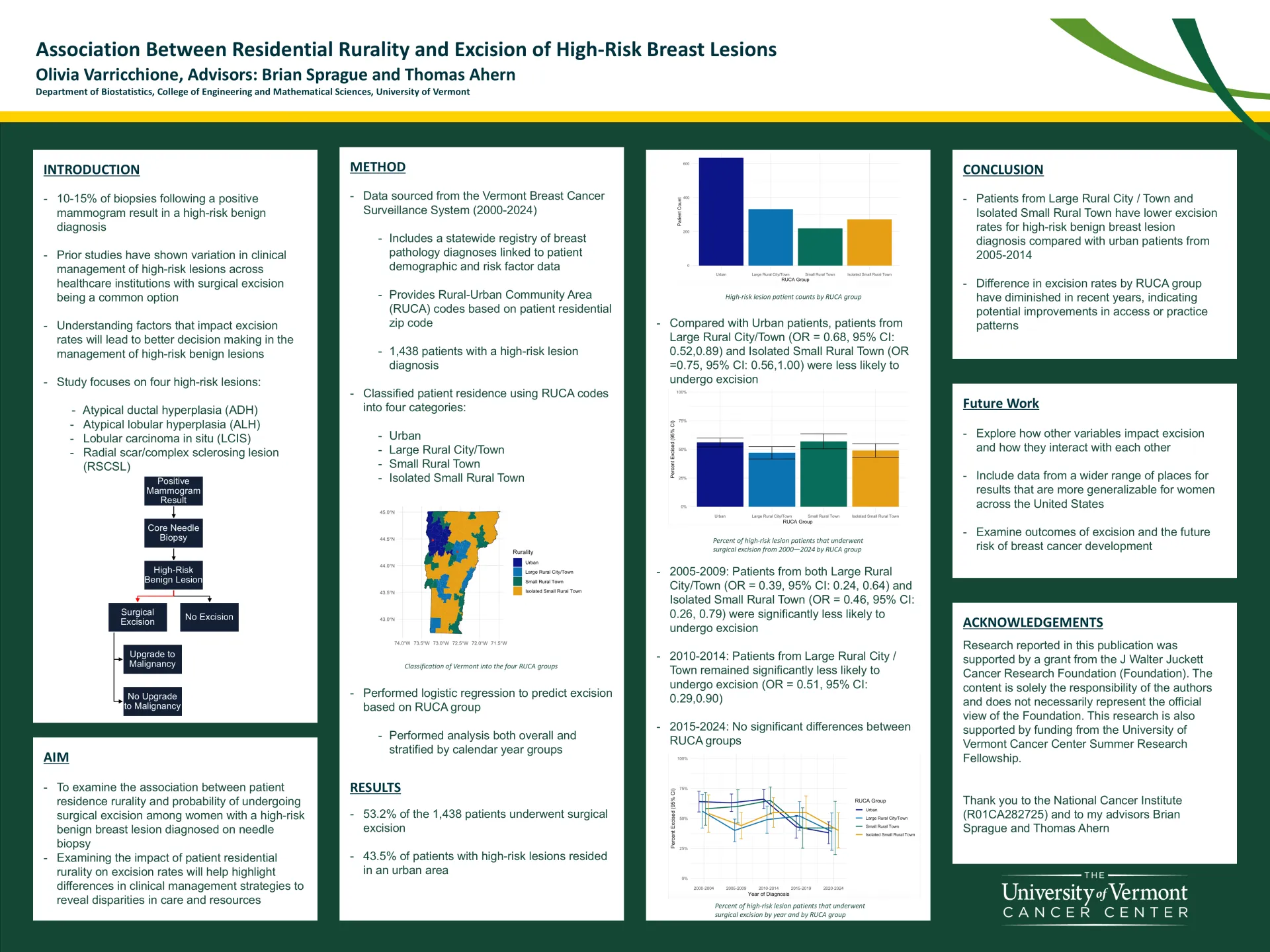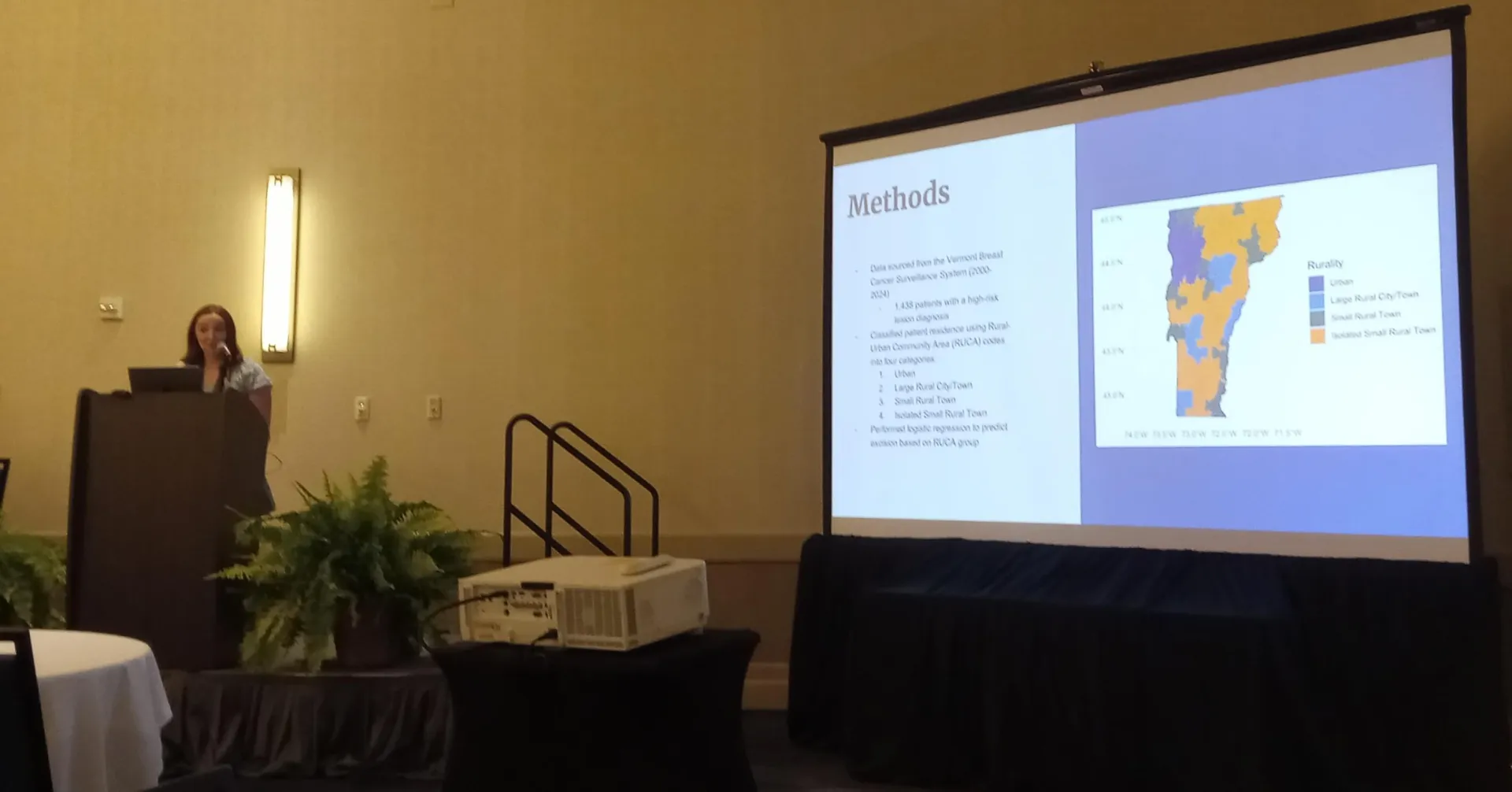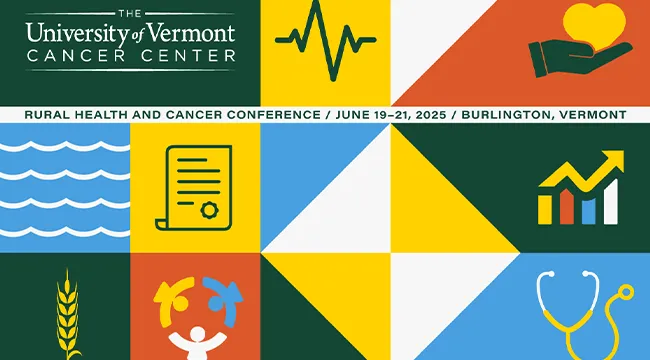VBCSS trainee, Olivia Varricchione was awarded a UVM Cancer Center summer research fellowship to examine the association between patients’ residence rurality and probability of undergoing surgical excision among women with a high-risk benign breast lesion diagnosed via needle biopsy. Using data from the VBCSS from 2000-2024 she classified patient residence using Rural-Urban Commuting Area (RUCA) codes, into four categories: urban, large rural city/town, small rural town and isolated small rural town.
Of 1,438 patients with a diagnosis of a high-risk benign breast lesion, her analysis showed that 53.2% underwent surgical excision and 43.5% of those patients resided in an urban area.
This research shows that historically, patients in the large rural city/town and isolated small rural town groups were significantly less likely to undergo excision; however, this trend has shifted over time. Data from 2015-20024 shows that there are no significant differences between the four RUCA groups and their decision to undergo excisional biopsy of their high-risk benign breast lesion. This implies that there has been improvement in access and/or practice patterns.
Varricchione presented her findings at the inaugural Rural Health and Cancer Conference, held June 19-21, 2025, in Burlington, VT. The conference was hosted by the UVM Cancer Center with the aim of improving rural cancer outcomes.


